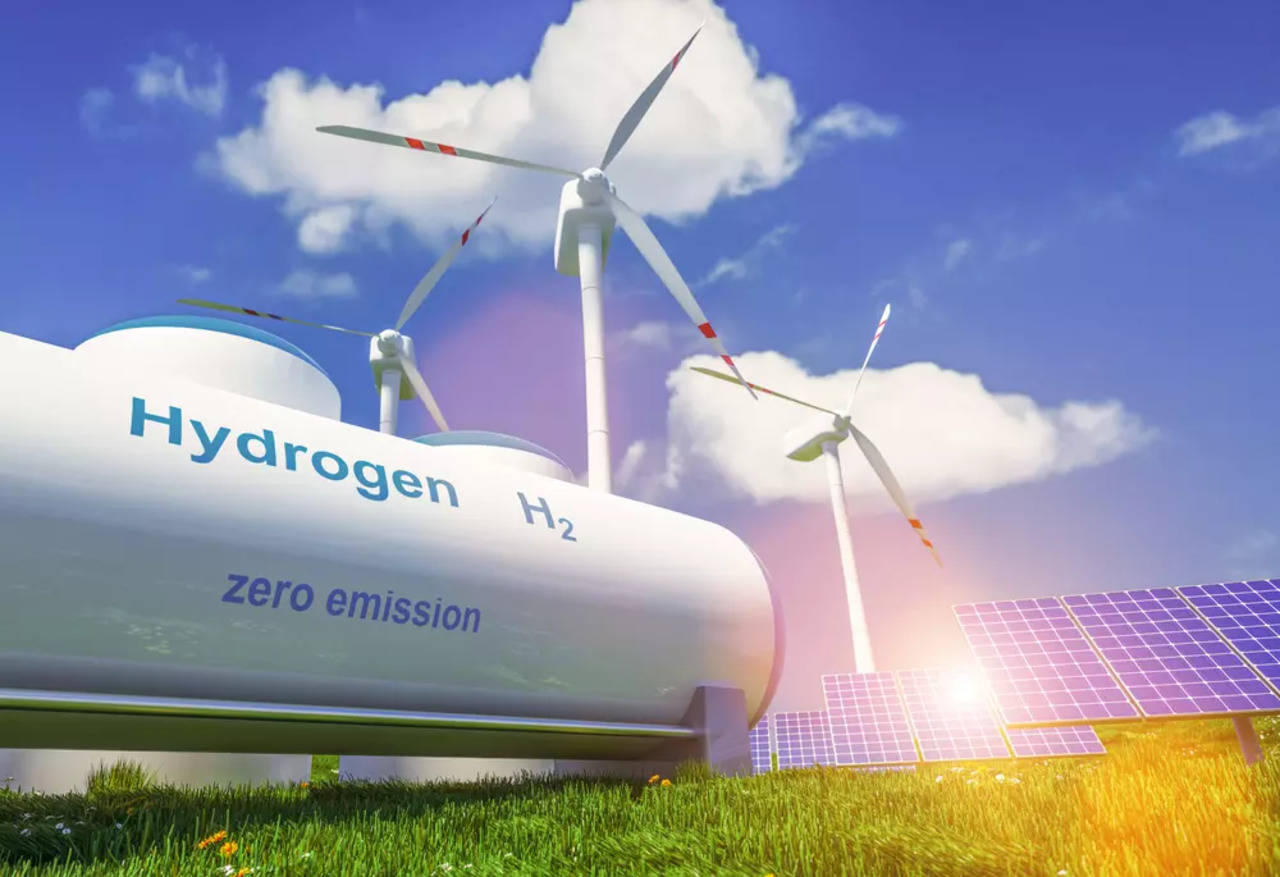Power Finance Corporation Ramps Up Renewable Projects Loans in 2023: A Green Leap Forward

Power Finance Corporation Ramps Up Renewable Projects Loans in 2023: A Green Leap Forward
Parminder Chopra, chairman and managing director of Power Finance Corporation (PFC), said the company wants to expand financing for renewable energy projects.
“Our contribution to financing for renewable energy projects will rise. All I can say is that. The opportunities available will determine the rate of expansion, she added.
PFC stated on Friday that it has signed credit agreements with 20 firms totalling more than Rs 2.37 trillion.

Adani Group, Greenco, ReNew Power, Continuum, Avaada, JBM Auto, Rajasthan Renewable Energy, and Megha Engineering and Infrastructure are just a few of the companies in this group. The organisation explicitly aims to support renewable energy projects, including offshore wind, pumped hydro storage, solar modules and cells.
“In the future, we anticipate several prospects in the renewable energy sector. PFC would pay particular attention to these locations, she continued.
India’s Prime Minister Narendra Modi stated at the most recent G20 summit that the goal is to provide around 50% of the nation’s overall energy needs from non-fossil sources by 2030.
The government has let the corporation devote up to 30% of its loan to the infrastructure sector and power.
We will continue to concentrate on the electricity industry while progressively increasing funds for infrastructure. Refineries, airports, metros, refineries, etc., among others,” she stated.
As of March 31, the company’s consolidated loan book increased 13% yearly to Rs 8.6 trillion. It plans to provide loans of Rs 85,000 crore on average in 2023–24 (April–March), which is comparable to the last fiscal year.
The gross non-performing asset ratio decreased from 5.02% a year earlier to 3.66% as of March 31.

The business recently said it would sell secured non-convertible debentures to the market to finance Rs 5,000 crore. The debentures tranche I was offering has an essential issue size of Rs 500 billion and a green shoe option of up to Rs 4,500 billion.
The first tranche of the offering began on Friday and will end on July 28.
At least 75% of the net proceeds from the tranche I issue will be used for debt service and further lending, and up to 25% will be utilised for general business purposes.
The business plans to borrow Rs 18,000 crore in 2023–2024.
The corporation has borrowed a total of Rs 3.6 trillion as of March 31. Private placement and foreign currency borrowings account for around 80% of non-bank lenders’ borrowings. Term loans make up the remaining 20%.
As a commitment towards fostering a sustainable future, the Power Finance Corporation (PFC), India’s leading power sector Non-Banking Financial Company (NBFC), is intensifying its efforts to financially back renewable energy projects. This step aligns with India’s dedication to reducing carbon emissions and reinforcing the renewable sector.
In 2023, PFC strategically ramped up renewable project loans, marking a significant shift in its investment focus. Historically, PFC has predominantly financed traditional energy projects, mainly those focused on coal-based thermal power. This move reflects PFC’s increasing commitment towards funding clean energy projects, aiding India in meeting its ambitious clean energy targets.

The decision to amplify renewable loans comes at a pivotal time when the world acknowledges the pressing need to combat climate change by shifting to green and sustainable energy sources. The move marks a decisive step towards a green transition for India, a country heavily reliant on coal for its energy needs.
PFC has planned an aggressive investment strategy to ramp up renewable project loans, earmarking a substantial percentage of its annual budget towards financing renewable energy projects. PFC will focus on lending to various renewable projects, including solar, wind, hydropower, and bio-energy.
The corporation has also embraced the adoption of cutting-edge technologies, endorsing projects that employ modern and efficient energy conversion methodologies. This technology-forward approach ensures that financed projects are eco-friendly and technologically advanced, increasing efficiency and return on investment.
PFC’s decision to bolster renewable project loans promises numerous benefits for the renewable energy sector in India. It provides much-needed financial support for start-ups and established companies, encouraging them to innovate and accelerate their renewable energy projects.

The increased availability of loans is expected to attract more investors to the renewable energy sector, facilitating the growth of a green economy in India. It will help the country achieve its renewable energy targets, create employment opportunities, and promote sustainable development.
Despite the many advantages, the transition to renewable energy is fraught with challenges. Chief among them is ensuring the viability and sustainability of renewable projects. Other challenges include:
Maintaining grid stability with increased penetration of renewables.
Handling the intermittent nature of some renewable energy sources.
Managing such projects’ social and environmental impacts.
PFC is committed to rigorous due diligence and risk assessment before approving any loans to combat these challenges. It also invests in skills development and capacity building to help stakeholders adapt to the changing energy landscape. The corporation is focused on innovative solutions, such as energy storage and grid balancing technologies, to tackle the intermittency issue associated with certain types of renewable energy.
PFC’s move to ramp up renewable project loans in 2023 marks a significant shift in India’s power financing landscape. The bold step underlines the corporation’s commitment to supporting the nation’s transition to clean, green energy.

The initiative not only underscores India’s commitment to tackling climate change but also sets a precedent for other financial institutions in the country to follow. As PFC paves the way, the expectation is that more financial institutions will align their portfolios with sustainable and green financing, propelling India closer to its renewable energy targets.
PFC’s decision reaffirms the power of finance in driving environmental change, underscoring that the transition to a green and sustainable future is an ecological necessity and a remarkable economic opportunity. As PFC moves forward with this initiative, it sets an encouraging precedent for the global renewable energy financing landscape.




